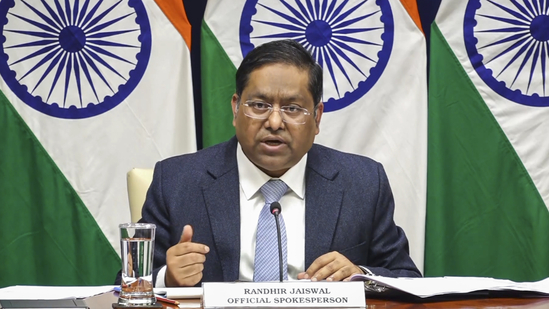India on Friday strongly rebutted Bangladesh’s criticism of the recent violence in West Bengal’s Murshidabad district, which claimed three lives, terming Dhaka’s statement a “disingenuous attempt” to equate it with India’s concerns over minority persecution in Bangladesh.
Ministry of External Affairs (MEA) spokesperson Randhir Jaiswal, responding to Bangladesh’s comments, stated, “We reject the remarks made by the Bangladesh side with regard to the incidents in West Bengal. This is a barely disguised and disingenuous attempt to draw a parallel with India’s concerns over the ongoing persecution of minorities in Bangladesh where the criminal perpetrators of such acts continue to roam free.”
The violence broke out last week during protests over the Waqf (Amendment) Act and quickly escalated across Murshidabad, Malda, South 24 Parganas, and Hooghly districts. Clashes led to widespread arson, stone-pelting, and road blockades, prompting a security alert.
On Thursday, Shafiqul Alam, press secretary to Bangladesh’s Chief Adviser Muhammad Yunus, condemned the violence against Muslims and called on the Indian government to ensure the safety and protection of the minority population.
In response, Jaiswal criticized the statement, saying, “Instead of making unwarranted comments and indulging in virtue signaling, Bangladesh would do better to focus on protecting the rights of its own minorities.”
According to a report by ANI, the Indian Ministry of Home Affairs (MHA) was informed of an initial investigation suggesting the involvement of alleged Bangladeshi miscreants in the Murshidabad unrest. It is believed that the perpetrators initially received support from some local political elements before becoming uncontrollable.
Union Home Secretary Govind Mohan has spoken with the West Bengal chief secretary and DGP, offering central support. He also advised close surveillance of other sensitive districts and swift measures to restore normalcy.
The incident has added a fresh strain to India-Bangladesh ties, bringing renewed focus to the challenges of cross-border influences and minority rights in both nations.








 India
India












